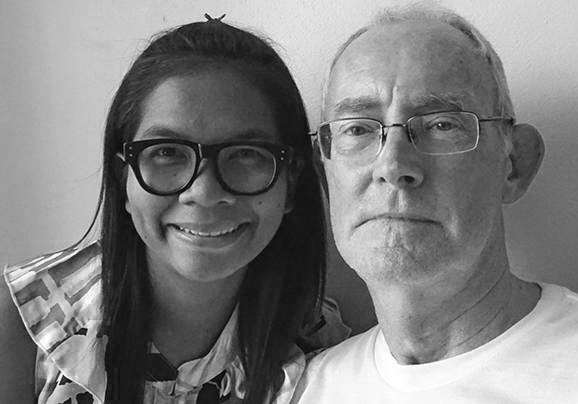The Thai government must end proceedings against two journalists who were today acquitted of charges of defaming the Royal Thai Navy and immediately repeal the country’s criminal defamation laws, the ICJ said today.
The two journalists with the Phuketwan online news outlet, Alan Morison and Chutima Sidasathian, were charged with criminal defamation under the Thai Criminal Code and violation of Article 14(1) of the Computer Crimes Act.
“Today’s verdict affirms the right of journalists in Thailand to freely express their views, even if – especially if – they sometimes have to criticize public authorities when it is in the public interest to do so,” said Kingsley Abbott, ICJ International Legal Adviser for Southeast Asia, who observed the proceedings.
“The verdict today is a relief not only for the two brave journalists who could have faced jail sentences for doing their job, but also for other journalists in Thailand who followed this case with anxiety about potentially significant new restrictions on their ability to work,” he added.
The prosecution now has 30 days to appeal the verdict.
“The charges against these two journalists generated severe international criticism for Thailand and harmed the country’s reputation more than any article in Phuketwan,” said Abbott. “The prosecution should take heed of this verdict and drop the case without further appeal.”
The Royal Thai Navy had complained that the journalists defamed it when, on 17 July 2013, the journalists reproduced a paragraph from a Pulitzer prize-winning Reuters article that alleged “Thai naval forces” were complicit in human trafficking.
In a decision read out today at the Phuket Provincial Court, with respect to the charges of criminal defamation, the Judge held that the journalists had reproduced information from a news source, Reuters, that they believed to be reliable.
Regarding the charges under the Computer Crimes Act, the Judge found that the information that was published was not “false computer data” and was not information that could “cause damage” to national security which are elements of Article 14(1).
The Judge also noted that the Computer Crimes Act was not intended to cover allegations of defamation.
“Thailand must repeal its criminal defamation laws in recognition that criminal penalties are a disproportionate means to address reputational damage,” Abbott added.
“Thailand should also reform the Computer Crimes Act to more precisely define that its purpose and scope is not intended to place limitations on freedom of expression.”
Background
Article 19 of the International Covenant on Civil and Political Rights (ICCPR), to which Thailand is a State Party, guarantees the right to freedom of expression, which includes the right to impart information.
The UN Human Rights Committee, which monitors State compliance with the ICCPR, has expressed its concern at the misuse of defamation laws to criminalize freedom of expression and has said that such laws should never be used when expression is made without malice and in the public interest.
It has also clarified that imprisonment is never an appropriate penalty for defamation.
The ICJ, the Human Rights Committee, the UN Special Rapporteur on freedom of opinion and expression and other international human rights bodies and an increasing number of governments believe that criminal defamation laws should be abolished. Such laws are incompatible with the right to freedom of expression.
Criminal penalties are a disproportionate means to protect against reputational harm and pose an impermissibly severe impediment to the exercise of free expression.
Thailand was criticized in May 2014 when the United Nations Committee against Torture expressed its concern “at the numerous and consistent allegations of serious acts of reprisals and threats against human rights defenders, journalists, community leaders and their relatives, including verbal and physical attacks, enforced disappearances and extrajudicial killings, as well as by the lack of information provided on any investigations into such allegations.”
The Committee recommended that Thailand “should take all the necessary measures to: (a) put an immediate halt to harassment and attacks against human rights defenders, journalists and community leaders; and (b) systematically investigate all reported instances of intimidation, harassment and attacks with a view to prosecuting and punishing perpetrators, and guarantee effective remedies to victims and their families.”
Read also:
The Phuketwan trial: an insidious prosecution of free expression
Contact:
Kingsley Abbott, ICJ International Legal Adviser, (Bangkok), t:+66 944701345, e: kingsley.abbott(a)icj.org
Thailand-Phuketwan trial-News-Press releases-2015-THA (full text in PDF, Thai version)





